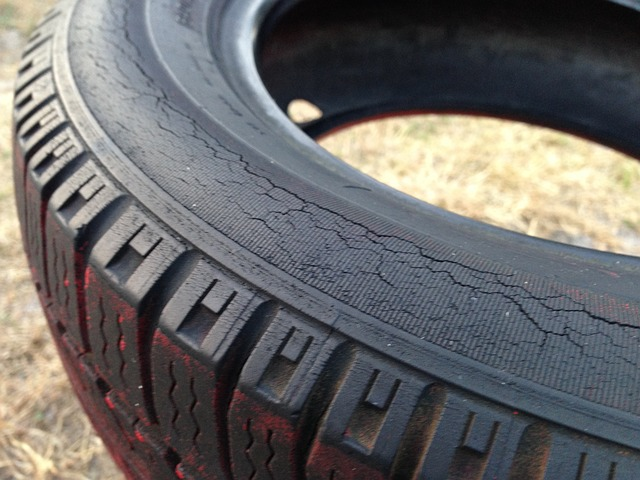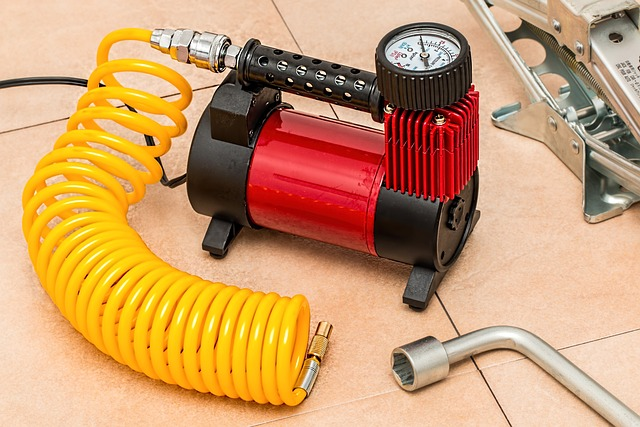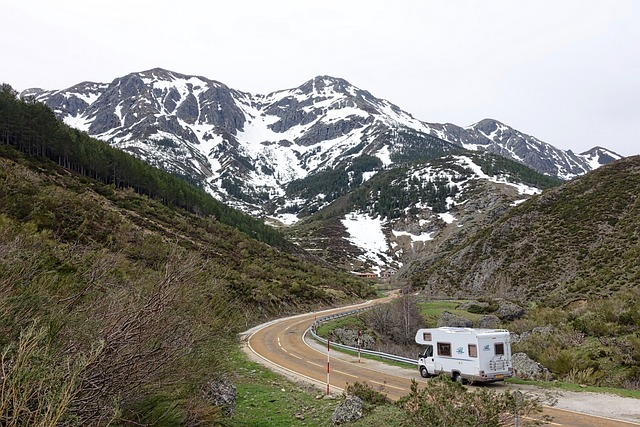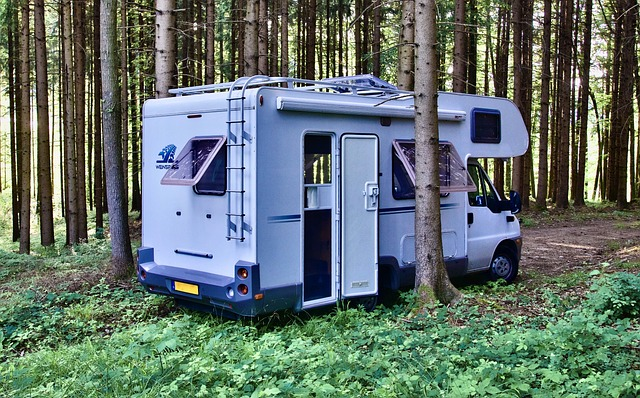Are you aware that proper tire maintenance and monitoring can significantly reduce the risk of accidents while traveling in your RV? In this blog post, we’ll explore “how often are tire blowouts or tire maintenance issues a cause of RV accidents” and discuss essential tire maintenance practices for RV safety, as well as provide tips on how to choose the right tires for your RV. We’ll also delve into the benefits of installing a tire pressure monitoring system (TPMS) and discuss the importance of proper weight distribution and loading techniques. So buckle up and let’s embark on a journey to ensure a safer RV experience for you and your loved ones!
Key Takeaways
- Neglecting tire maintenance can lead to blowouts and increase RV accident risks.
- Proper tire pressure, age/quality checks, alignment/balance rotation & weight distribution are essential for safety.
- Driver education & awareness as well as emergency plans help reduce risk of tire-related accidents.
The Impact of Tire Blowouts and Maintenance Issues on RV Accidents

Tire blowouts, including RV tire blowouts, can have a considerable impact on RV accidents, with factors such as tire pressure, age, and quality playing a crucial role in maintaining safety on the road. Neglecting proper tire maintenance can result in an RV tire blowout, leading to a loss of control highway speed and stability, and potentially dangerous situations.
The Role of Tire Pressure in RV Accidents
For RV safety, keeping an ideal tire pressure is crucial. Underinflated or overinflated tires can lead to blowouts and loss of control, putting you and your passengers at risk. Tire pressures can be affected by temperature changes, with a 2 percent change in inflation for every 10-degree change in temperature when the vehicle is stationary. Before each RV trip, it’s imperative to check tire air pressure and tighten lug nuts to guarantee road safety.
Tire pressure monitoring systems (TPMS) are a valuable tool for maintaining correct tire pressure. These systems provide real-time detection of potential tire issues, allowing for timely intervention to avert accidents. A significant reduction in the risk of tire blowouts and better control over your RV on the road can be achieved through diligent monitoring and adjustment of tire pressure with a good tire pressure gauge, which often includes a tire pressure monitor.
Effects of Tire Age and Quality on RV Safety
The age and quality of tires can significantly affect the safety of your RV. Here are some important points to consider:
- Tire blowouts and failures are more likely to occur with older tires.
- Inferior quality tires may be more vulnerable to damage.
- Regular inspection and replacement of old or damaged tires, including flat ones, is necessary to prevent tire-related accidents.
Indicators that suggest tire replacement is necessary include:
- Tread depth
- Cracking
- Tread separation
- Sidewall bubbling
- Sun damage
- Uneven wear
Familiarizing yourself with the differences between radial st tires and bias-ply trailer tires can also help you make informed decisions when it comes to tire replacement. Radial tires generally have a longer tread life, while bias-ply trailer tires are designed for heavier loads.
It’s recommended to replace RV tires every 3-6 years, depending on your tire rating and usage. Maintaining awareness about the age and quality of your RV tires can significantly improve your road safety and help avoid tire-related accidents.
Essential Tire Maintenance Practices for RV Safety

To ensure RV safety, it’s vital to regularly check tire alignment, balance, and rotation; replace worn tires with the appropriate size and durability; avoid excessive heat; and maintain proper weight distribution. Proper tire maintenance not only helps prevent accidents but also prolongs the life of your tires and enhances fuel efficiency.
Ensuring the safety of your RV requires proper tire maintenance. Here are some important steps to take:
- Regularly check tire alignment, balance, and rotation
- Replace worn tires with the appropriate size and durability
- Avoid excessive heat and maintain proper weight distribution
By following these guidelines, you not only prevent accidents and tire failures, but also prolong the life of your tires and improve fuel efficiency.
Monitoring Tire Temperature
Keeping an eye on tire temperature correct air pressure can help prevent blowouts caused by excessive heat, which weakens the rubber and causes expansion. Regular monitoring of tire temperature and making necessary adjustments to tire pressure, especially in hot weather, is important.
There are several methods for monitoring tire temperature, including utilizing a tire pressure monitoring system (TPMS) or inspecting the tires manually with a thermometer. Maintaining vigilance about tire temperature and making necessary adjustments can help ward off blowouts and reduce the risk of tire-related accidents.
Choosing the Right Tires for Your RV
Selecting the appropriate tire type and size for your RV ensures optimal weight distribution on new tires and reduces the risk of tire-related accidents. Considering the RV’s Gross Vehicle Weight Rating (GVWR) when choosing tires is essential, as the tires need to support the RV’s weight without causing unnecessary stress or strain.
It’s also crucial to ensure that all tires installed on the RV trailer are of the same size and capacity. The total capacity of the tires must match or exceed the Gross Vehicle Weight (GVW) of the axle, and the combined capacity of all tires should be at least 20 percent greater than the loaded weight of the trailer. Choosing the right tires for your RV can help maintain proper weight distribution, prevent tire blowouts, and improve overall road safety.
Benefits of Tire Pressure Monitoring Systems (TPMS)

Investing in a tire pressure monitoring system (TPMS) can help detect potential tire issues in real-time, allowing you to address problems before they lead to accidents. TPMS can monitor tire pressure and temperature, allowing you to make adjustments as needed to maintain optimal tire performance and prevent blowouts.
Some highly rated TPMS options for RVs include:
- Techno TST 507
- EEZ RV Time
- TireMinder TPMS
- Tymate M12-3
- B-Qtech 6 Sensor
Installing a TPMS in your RV can enhance your overall road safety and reduce the risk of tire-related accidents.
Selecting the Best TPMS for Your RV
When choosing a TPMS for your RV, it’s important to select a reliable system that meets the range needs of your RV size and offers features such as temperature monitoring and real-time alerts. Some top-rated TPMS options for RVs include:
- Techno TST 507 RV Tire Pressure Monitoring System
- EEZ RV Time Tire Pressure Monitoring System
- Tymate M12-3
- TST 507 Series
- EEZ Tire TPMS4
- B-Qtech 6 Sensor
- Tire Minder i10
- GUTA 6 Sensor
- TST Tire Pressure Monitoring System
- EEZTire TPMS
Before choosing, make sure that the TPMS is compatible with your RV tire size and provides comprehensive monitoring and alert features, which will aid in maintaining proper tire pressure and preventing accidents. Making a smart investment in a high-quality TPMS can greatly boost your RV safety and offer you peace of mind while traveling.
Proper Weight Distribution and Loading Techniques

Proper weight distribution and loading techniques can help prevent RV tire blowouts and accidents caused by uneven weight distribution. The Gross Vehicle Weight (GVW) has a direct effect on RV tires, and it’s essential to maintain an even distribution of weight to correct tire size ensure optimal performance and safety.
Utilizing Vehicle Weighing Facilities
Regularly weighing loaded trailer weight of your RV at vehicle weighing facilities can help you monitor and adjust your load to prevent tire blowouts and reduce liability in case of accidents. Vehicle weighing facilities can be found at:
- Wheel by wheel RV weighing stations
- Moving and storage companies
- Truck stops with certified automatic truck (CAT) scales
- The Escapees SmartWeigh program
- RV Mobile Weigh Stations
Weighing your RV immediately after loading and regularly thereafter is recommended for safe load distribution. Utilizing vehicle weighing facilities can enable you to maintain proper weight distribution, curb tire blowouts, and improve overall load rating and road safety.
Roadside Assistance and RV Insurance

Having roadside assistance and RV insurance can provide financial protection and support in case of tire-related accidents or emergencies. Top-rated roadside assistance programs for RVs include:
- Good Sam RV Road Assistance
- Coach-Net
- AAA Plus RV
- Progressive Roadside Assistance
- Escapees Roadside Assistance
- FMCA (Family Motor Coach Association) Roadside Rescue
- The Paragon Motor Club
Preparing for Emergency Situations
Preparation for emergencies like tire blowouts can facilitate quick and safe reactions to minimize damage and risk. Essential tools and equipment for emergency situations include:
- RV-DE-FENDER® Tire Blowout Protection System
- RV roadside emergency kit (including a lug wrench, flares or warning triangles, and a tire repair kit)
- RV SAFATY BAND® device for tire safety
- Tyron system to help prevent rollovers caused by tire blowouts
An RV emergency plan can help you respond effectively to tire blowouts by outlining the necessary steps to ensure the safety of the occupants and minimize damage. Regularly practicing emergency drills can help you develop the muscle memory and decision-making skills needed to respond quickly and calmly when a tire blowout occurs.
Preventive Measures to Reduce Tire-Related RV Accidents

Based on the provided text, I have split it into two paragraphs:
Implementing preventive measures like driver education, awareness from tire manufacturers, and proper steering wheel handling can aid in reducing the instances of tire-related RV accidents and enhancing overall road safety for tow vehicles.
Routine checks for proper inflation, tread wear, and signs of damage can proactively ward off tire blowouts, flat tire incidents, front tire part failure, and other rear tires-related issues.
Importance of Driver Education and Awareness
Ensuring that RV drivers are educated on tire maintenance, weight distribution, and safe driving practices can help prevent accidents caused by tire blowouts or other tire-related issues. Driver education is a vital factor in improving RV road safety, as it equips students with the necessary knowledge and skills to drive safely, including defensive driving techniques and an understanding of RV-specific traffic regulations.
Effective methods for increasing driver awareness regarding RV tire maintenance include:
- Regularly checking tire pressure
- Balancing load distribution
- Following manufacturer guidelines
- Properly cleaning and storing tires
- Providing driver training
Promotion of driver education and awareness can collectively contribute to the reduction of RV accident risks and the creation of a safer road environment.
Summary
In conclusion, proper tire maintenance, monitoring, and driver education are essential factors in reducing the risk of tire-related RV accidents. By adopting preventive measures and investing in tools like a TPMS, you can safeguard your RV and its occupants, ensuring a safer and more enjoyable RV experience. Remember, the journey is just as important as the destination, so let’s work together to make our roads safer for all.
Frequently Asked Questions
How often do tire blowouts cause accidents?
Tire blowouts are unfortunately more common than you might think, causing an average of 78,000 accidents and over 400 deaths per year.
Why does my camper keep blowing tires?
It seems that your camper's tires are at greater risk of suffering a blowout due to old tires being unused for prolonged periods, resulting in dry rot. Regular use of the tires could help prevent further issues.
Are RV tire blowouts common?
RV tire blowouts are unfortunately common, due to the extra weight and strain placed on them. Taking preventative measures and understanding the risks of blown tires can help reduce their occurrence.
Does RV insurance cover damage from a blown tire?
Yes, most RV insurance policies will cover tire blow out damage as it is one of the more common sources of damage. Repair costs are usually covered as long as the RV does not get totaled because tire blew out.
How often should I check the tire pressure on my RV?
It is recommended to check the tire pressure on spare tires of your RV before each trip, particularly when tires are cold.

